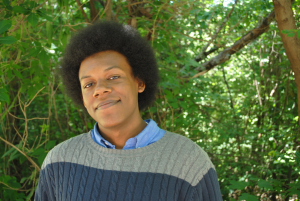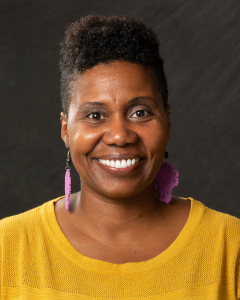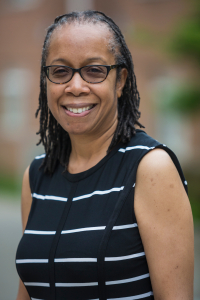AADHum Scholars
2019–2020 AADHum Scholars Call For Proposals
Program Description
The African American History, Culture, and Digital Humanities (AADHum) Initiative at the University of Maryland is pleased to continue its AADHum Scholars Program for the 2019–2020 academic year, with generous support from the Andrew W. Mellon Foundation. AADHum welcomes applications from students, faculty, archivists, librarians, museum professionals, and publicly engaged scholars—working inside and outside institutions–interested in advancing Black DH within a vibrant community of practice. While we welcome applicants from near and far, AADHum will not be able to offer additional funding for travel and lodging.
The AADHum Scholars Program is designed for scholars committed to intentionally advancing their project, while also participating in deep exchange with the cohort. In addition to building technical skill efficacy, this program creates space for scholars to grapple with theory, critique, and implications that emerge in Black DH practice. Scholars who are self-motivated and prepared to work through this enrichment process are encouraged to apply.
Alumni of the AADHum Scholars Program have produced a robust research portfolio and thoughtful community. Both the inaugural class of AADHum Scholars and the 2018- 2019 AADHum Scholars contributed to AADHum blog, participated in Digital Humanities Intensives and Incubators, and presented during AADHum’s workshop series. Scholars also presented their work at AADHum’s national conference, Intentionally Digital, Intentionally Black.
AADHum and MITH staff will offer the new cohort of AADHum Scholars individualized support to develop their digital scholarship. Proposed work can include: syllabus transformation, in-progress digital project, or developing a digital component to a dissertation, article or book chapter. AADHum and MITH staff are also pleased to plan possible publication and dissemination strategies for projects. The AADHum Scholars Program will deepen the cohort’s understanding of Black DH, giving special attention to design, ethics, DH tools, collaboration, and project management. After presenting and gaining feedback during the AADHum Intensive sessions, scholars have the opportunity to receive up to $6,500 in June 2020 to support summer research.
Program Requirements
- All AADHum Scholars are required to present their in-progress work in an AADHum Intensives session during the Spring 2020 semester
- All AADHum Scholars must attend two (2) AADHum Intensive sessions (in addition to their own) as well as two (2) working group sessions; attendance must be physical, rather than remote/virtual. Scholars can attend other sessions remotely in addition to the four mandatory in-person sessions. Dates and times for Spring 2020 Intensives and working group sessions are forthcoming. AADHum will not provide additional lodging or traveling funds.
- All AADHum Scholars must work with AADHum staff to write, revise, and publish one (1) post on the AADHum blog. AADHum will provide the guidelines for blog contributions.
- All AADHum Scholars must write a report on the outcomes of their summer work, to be submitted in August 2020.
Program Application
- To apply for the AADHum Scholars Program, submit the following materials as a single PDF to aadhum@umd.edu by Monday, November 18.
- Brief cover letter detailing your current/proposed research project, teaching, skills, and interests. Be sure to include any relevant project links. This program is designed to advance projects centering Black history and culture. Application readers will look for thoughtful engagement with debates in Black Studies and an awareness of methodologies of care and harm reduction in the digital space. Only applicants with explicitly digital projects will be considered.
- Current curriculum vitae.
Program Schedule
| Friday October 4, 2019 MITH Conference Room and Livestream 0301 Hornbake Library University of Maryland College Park, MD 20742 |
AADHum Scholars information session |
|---|---|
| Tuesday–Friday October 8–11, 2019 |
Optional AADHum and MITH feedback appointments |
| Monday November 18, 2019 |
AADHum Scholars application due |
| Friday December 6, 2019 |
Applicants receive notification |
| Thursday January 30, 2020 |
AADHum Scholars introduction meeting |
| Wednesday & Fridays Februaryy–April, 2020 Dates and times TBD |
Intensives (one hour sessions), Working Group and Reading Group sessions (1.5 hour session); Dates and times TBD |
| Mayy–August 2020 | Scholars awarded summer funding continue their work |
Meet the 2018-2019 AADHum Scholars
Want to support and learn more about the Scholars’ work?
Engage with them during the Spring 2019 Intensives series!

Kimberly Bain is a Ph.D. Candidate in English and Interdisciplinary Humanistic Study at Princeton University. Kimberly’s most pressing intellectual interests have consolidated around questions of the history, theory, and philosophy of: diaspora, race, gender, postcolonialism, enslavement, flesh, environmental racism, resistance, embodiment, and subjection and subjecthood. Her dissertation, entitled “On Black Breath: A Theory and Praxis,” takes seriously the charge of “I can’t breathe” and considers breath as more than the mere metaphor—rather, as also a somatic and sociopolitical phenomenon that has resonances in the wake of enslavement to the contemporary moment. At Princeton, Kimberly is affiliated with the American Studies Program and African-American Studies Department. More information about her current work can be found at kimbain.com.

Victor Bramble is a Ph.D. student in the department of American Studies at the University of Maryland, College Park. They received their Bachelor’s degree in the departments of Ethnic Studies and Modern Culture & Media from Brown University. At Maryland, they are a Flagship Fellow and Southern Regional Education Board Doctoral Scholar. Their dissertation research traces the development of decentralized government computing systems through the labor history of low-level public employees since the 1970s. While these employees were tasked to manage the “disorder” of poor and working-class communities of color through computing, Victor’s research demonstrates that neither the people, nor the technology, were so easy to control. Instead, we can see, through this history, that marginalized communities fundamentally influenced the design and development of government computing systems in their struggle to build lives for themselves against and outside the terms of their criminalization. They are co-protagonists of computing and governmental history, rather than mere targets of state surveillance or technological control.
When not teaching or researching, Victor loves to cook and is an avid over-analyzer of film and television.

Dr. Imani M. Cheers (@ImaniMCheers) is an award-winning digital storyteller, director, producer and filmmaker. As a professor of practice, Dr. Cheers uses a variety of mediums including video, photography, television and film to document and discuss issues impacting and involving people of the African Diaspora. Her scholarly focus is on the intersection of women/girls, technology, health, conflict, agriculture and the effects of climate change in sub-Saharan Africa. Dr. Cheers is also an expert on diversity in Hollywood, specifically the representation of Black women in television and film. Dr. Cheers is the co-creator and managing editor of Newsroom U, an innovative, immersive multimedia journalism initiative for high school and college students. She is also the executive director for the Global Media Project, an international storytelling program.
Before joining SMPA, Dr. Cheers was director of educational resources and a multimedia producer for the PBS NewsHour, a producer/writer at Howard University Television and a multimedia producer at Newsweek.com. She is a member of the National Association of Black Journalists, DAWN (Diaspora African Women’s Network) and a 2013 New Media Fellow with the International Reporting Project. Dr. Cheers is also a regular contributor for CCTV America and CTN Canada, offering insight into American race relations and popular culture.

Jordan Ealey (@jaealey) is a scholar and playwright, hailing from Atlanta, Georgia. As a second-year MA student in Theatre and Performance Studies, her research interests are in Black Feminism, Black Theatre and Performance (with a focus in Black Musical Theatre), and Black Girlhood Studies. Her current thesis project takes an in-depth look at Kirsten Childs’s musical, The Bubbly Black Girl Sheds Her Chameleon Skin, as well as generates a genealogy of Black women-authored musicals. In addition to her traditional academic scholarship, Jordan is also a playwright. Her plays have been developed and/or produced at Horizon Theatre Company, The Kennedy Center, and Rorschach Theatre.

Stan Maxson is a Ph.D. candidate in the Department of History at the University of Maryland, College Park. He specializes in nineteenth-century African American history and is especially interested in studying the transition from slavery to freedom, space and place in the post-civil war South, and the role of domestic relationships in constructing citizenship. His dissertation, “The Ties that Bind: African American Social Networks and Claims-Making in Postbellum Tennessee,” explores the multiple meanings of postwar Black mobility in the late nineteenth century. He is eager to work with AADHum to use digital humanities tools to bring together rich, but scattered, geographic information found in the Civil War pension files of Black veterans and their families in order to examine how pension applications brought people together across space and time in tangible ways.
Before beginning his Ph.D work at the University of Maryland, Stan received an M.A. in History from the University of Missouri, Columbia. Currently, Stan teaches a historical research methods seminar in the Department of History and eagerly encourages students to consider how the digital humanities can benefit public facing academic research. Stan maintains a strong commitment to public history by working toward a graduate certificate in Museum Scholarship and Material from the Department of American Studies and through his work as a 2018-2019 Graduate Teaching Fellow at the Teaching and Learning Transformation Center.

Rhondda Robinson Thomas (@prof07) is the Calhoun Lemon Professor of Literature at Clemson University where she teaches early African American literature and American literature in the Department of English. She completed her PhD in English at the University of Maryland. Her research interests include racial identities, migration, and auto/biography. Thomas has published Claiming Exodus: A Cultural History of Afro-Atlantic Identity, 1770-1903 and co-edited The South Carolina Roots of African American Thought. She contributed the “Locating Slave Narratives” chapter to the Oxford Handbook of the African American Slave Narrative and is the acquisitions co-editor for the African American Literature series at the Clemson University Press. Thomas is also the faculty director of the “Call My Name: African Americans in Clemson University History” multimodal research project for which she was awarded a 2018-19 Whiting Foundation Public Engagement Fellowship, a gift from the Dr. James and Edith Bostic, Jr., through the Clemson University Foundation, and grants from NEH Creating Humanities Communities, SC Humanities, and Clemson’s Office of the Provost. She recently accepted invitations to write a book for the Humanities and Public Life Series at the University of Iowa Press and an essay for a special issue on biographic mediation for the Biography journal about the Call My Name project.
